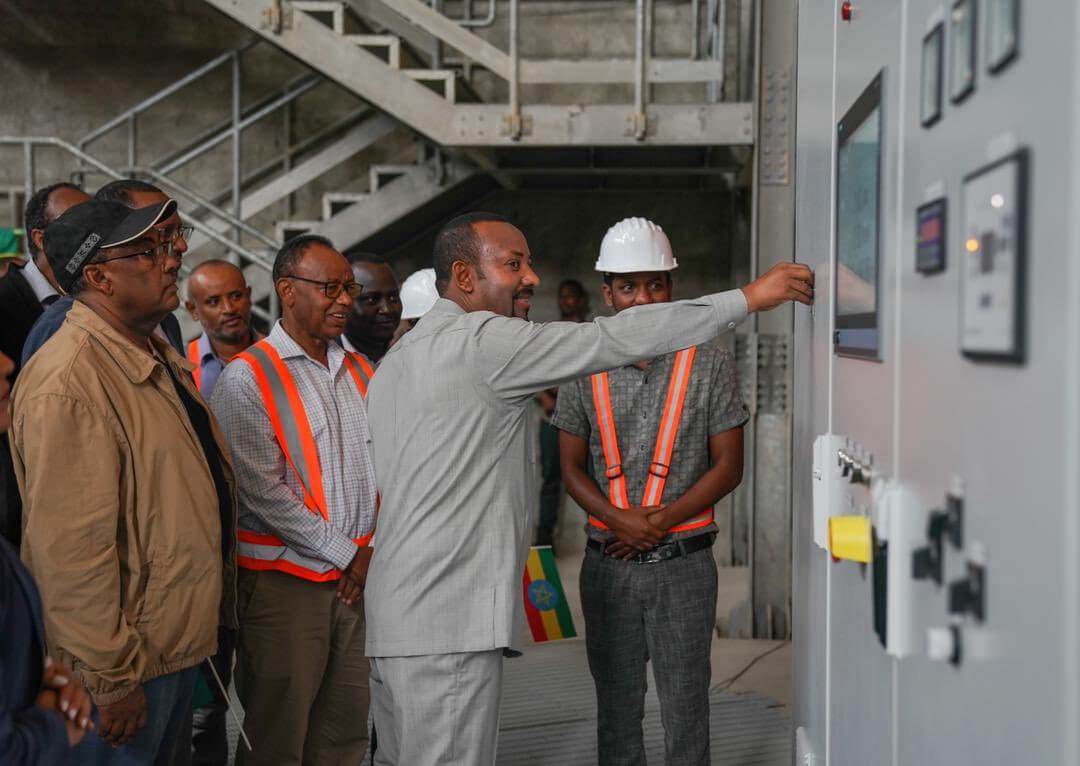Ethiopia on Thursday began generating electricity from the second turbine of the controversial Grand Ethiopian Renaissance Dam (GERD) despite fierce objections by Egypt and Sudan.
“The GERD is the historical project on which Ethiopians have invested their labour, money, and knowledge,” Prime Minister Abiy Ahmed said in the inauguration ceremony. Calling the event a “victory,” Abiy said the dam would benefit all Ethiopians.
Also known as ‘Unit 9,’ the second turbine is capable of generating 375 Mega Watts of electricity. The inauguration of Unit 9 comes more than five months after Ethiopia began power generation from the first turbine, following which Egyptian authorities condemned Addis Ababa’s decision to start producing power without consulting Cairo and Khartoum.
expressed his heartfelt gratitude to those who are working tirelessly to bring this grand Ethiopian dream to realization. PM Abiy further emphasized that it is this generation's responsibility to build the country on a solid foundation and pass it on to the next generation. (2/2) pic.twitter.com/0hWni4Qinf
— Office of the Prime Minister - Ethiopia (@PMEthiopia) August 11, 2022
Egypt called Ethiopia’s move a violation of the 2015 ‘Declaration of Principles’ (DoP) signed by all three countries. The DoP, which outlines ten principles, calls on Addis Ababa to inform both Cairo and Khartoum before undertaking any operations regarding GERD. The 2015 principles also stress the importance of mutual cooperation, fair use, and the peaceful settlement of the dispute.
Egypt has also condemned Ethiopia for starting the third filling of the Nile Dam and sent a letter to the United Nations Security Council (UNSC) in July objecting to the move. “Egypt completely rejects Ethiopia’s continuation of filling the GERD unilaterally without reaching an agreement with Egypt and Sudan,” Foreign Minister Sameh Shoukry said in the letter.
However, Ethiopia noted that the construction of GERD will not harm Egypt or Sudan. Abiy said during Thursday’s ceremony that Addis Ababa has “no aim to sideline and harm” Egypt and Sudan. “We have repeatedly told downstream countries, especially Egypt and Sudan, that by generating power we're developing our economy, as well as [our desire] to see our citizens who live in the dark see light,” he underscored.
#Ethiopia's 🇪🇹 grand dam generates more power, PM Abiy announces. The second turbine has the capacity to generate 375MW. The news comes amidst reports of third round of filling the controversial dam - #GERD. Ethiopia started generating power from River Nile dam back in February.
— Ameyu Etana (@ameyuetana) August 11, 2022
Ethiopia claims it has completed 88% of the dam’s construction work and the project will be fully ready by the end of 2023, at which point it will become Africa’s largest hydropower project, with a total capacity of 5.15 Giga Watts. Authorities have said, once completed, the dam will bring light to 60% of the population and provide energy security to vulnerable sections.
According to estimates, only 46% of Ethiopians have access to regular electricity. In comparison, the remaining 54% have either irregular or no access to electricity and mostly rely on wood, coal, and fuel to meet their daily needs.
Egypt relies on the Nile River for 96% of its freshwater needs. Moreover, almost 95% of its population lives within 12 miles of the river, using its resources for agriculture, industrial production, and sewage treatment. In this respect, Ethiopia’s construction of GERD on the Blue Nile tributary, which originates in Ethiopia’s highlands and provides the river with 85% of its total water flow, is perceived as a major national security threat. Egypt fears that the dam will decrease its supply of Nile water and that any diversion would lead to significant evaporation and water loss, especially during the dry season.

